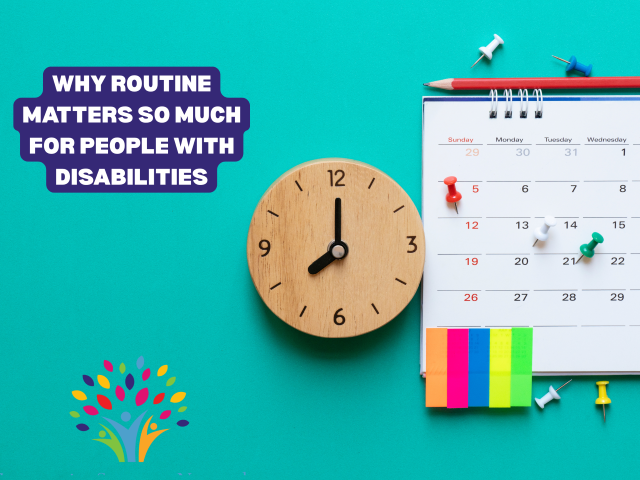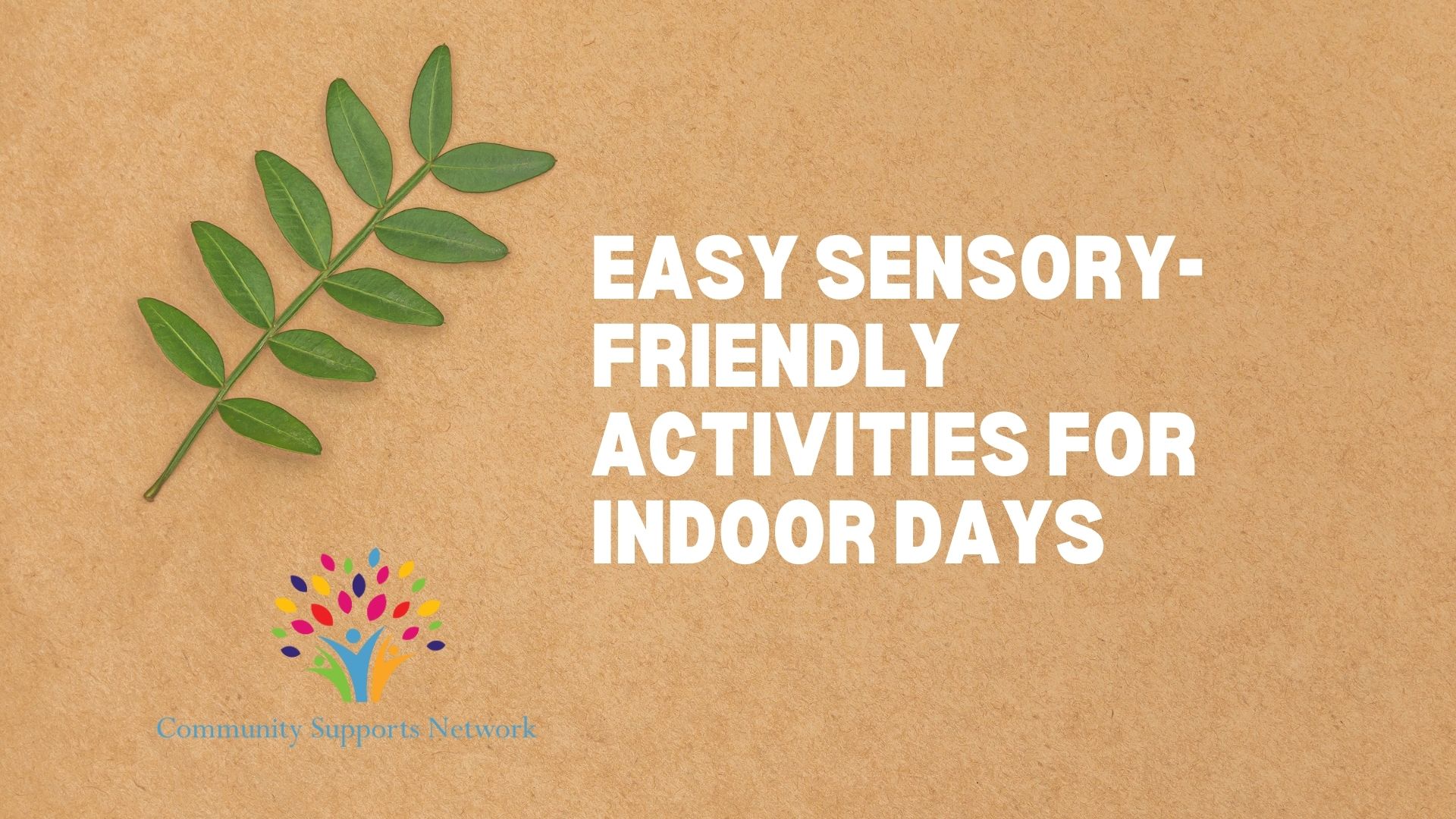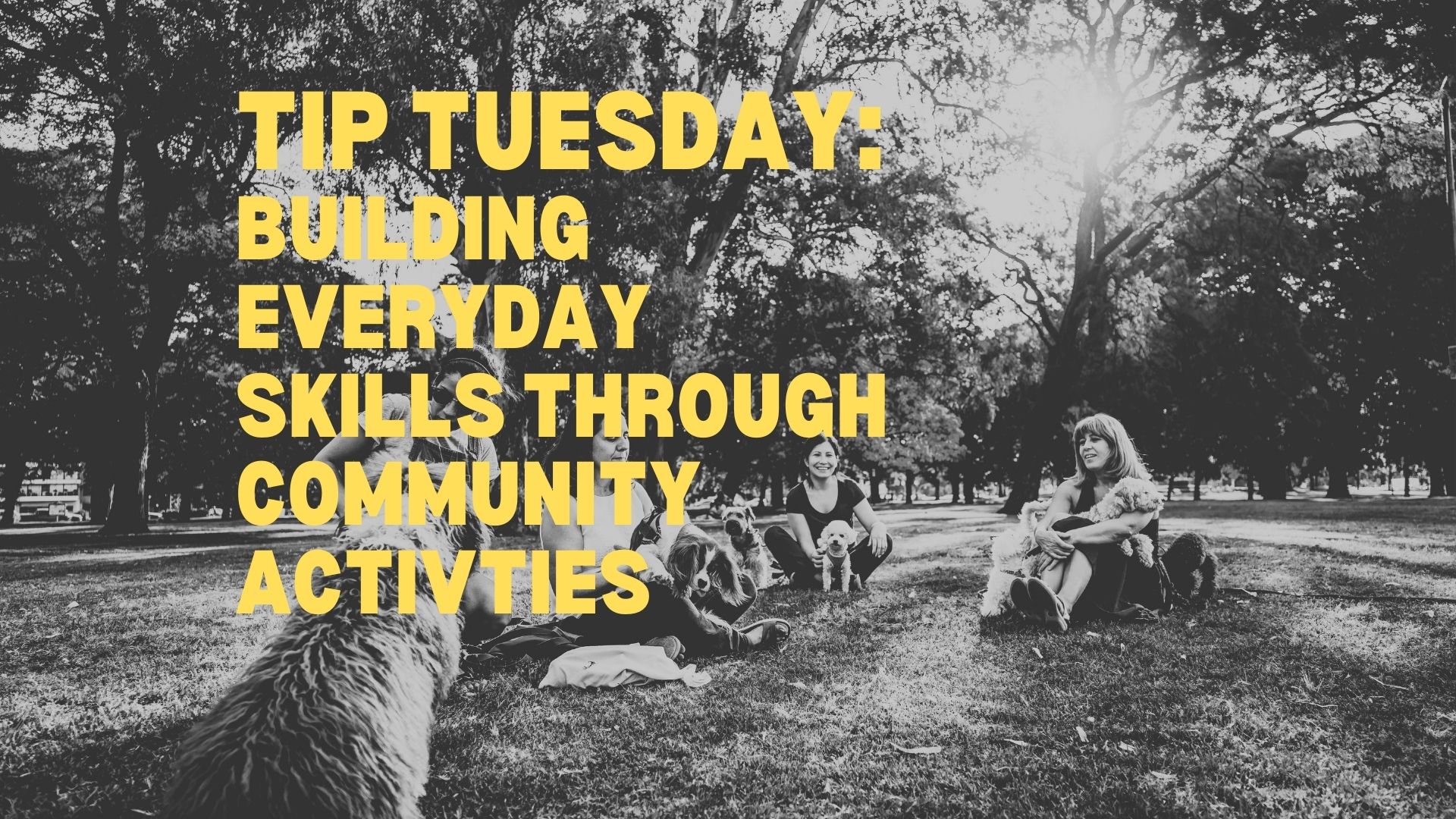
For many individuals with disabilities, routine isn’t just helpful — it’s comforting.
Knowing what the day will look like can bring a sense of calm, safety, and confidence. When things feel predictable, it’s easier to relax, focus, and manage emotions.
At Community Supports Network (CSN), we see every day how simple routines can make a big difference in how individuals feel and function.
Routine Helps People Feel Safe
Imagine not knowing what’s coming next — where you’re going, who you’ll see, or what’s expected of you. That kind of uncertainty can feel stressful for anyone.
For individuals with disabilities, that stress can show up as:
- Anxiety
- Frustration
- Shutdowns
- Trouble focusing
- Big emotional reactions
Routines help remove some of that worry. When people know what to expect, their bodies and minds can relax.
Routine Helps with Big Feelings
When the day has structure, emotions are often easier to manage.
Simple things like:
- Waking up at the same time
- Eating meals at regular times
- Knowing when activities start and end
- Having familiar transitions
can help individuals feel more in control.
That feeling of control supports emotional regulation — in other words, handling feelings in a healthier, calmer way.
Routine Builds Confidence
Doing the same steps each day helps people learn and grow.
Over time, routines help individuals:
- Remember what comes next
- Practice skills
- Make choices
- Feel proud of what they can do
- Trust themselves more
Even small successes add up and build confidence.
What a Good Routine Looks Like
A supportive routine should be:
- Predictable
- Flexible when needed
- Easy to understand
- Built around the individual’s preferences
- Balanced with activity and rest
Routine should never feel strict or controlling. It should feel supportive.
Simple Ways to Support Routine
DSPs and caregivers can help by:
- Keeping wake-up and bedtime consistent
- Using visual schedules or calendars
- Talking about changes ahead of time
- Keeping meals and daily activities at similar times
- Offering choices within the routine
- Bringing structure back slowly after breaks or holidays
Small steps go a long way.
When Routines Change
Life happens. Schedules shift. People get sick. Weather changes plans.
When routines are disrupted, it helps to:
- Keep familiar parts of the day the same
- Explain changes clearly
- Be patient
- Offer reassurance
- Validate feelings
Returning to routine gently can help emotions settle again.
Our Approach at CSN
At CSN, we believe routines should support the whole person — not just keep the day moving.
We focus on routines that respect:
- Individual needs
- Sensory preferences
- Communication styles
- Goals
- Comfort
When routines are built with care, people feel more secure, capable, and supported.
Final Thoughts
Routine isn’t about control.
It’s about creating a day that feels safe, manageable, and empowering.
At Community Supports Network, we’re proud to help individuals build daily rhythms that support emotional well-being, independence, and confidence — one day at a time.
Editor’s Note: If you would like to learn more about how we help our clients build independence and confidence, please see our page for individual supports.











